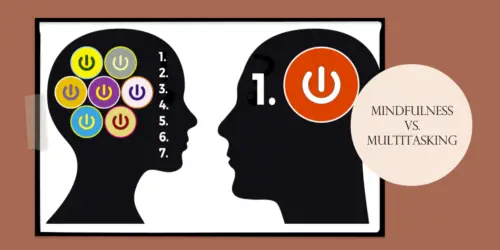9 Attitudes of Mindfulness According to Jon Kabat-Zinn

Just as a gardener tends to each plant with care and attention, you’re invited to cultivate your inner landscape with the nine attitudes of mindfulness outlined by Jon Kabat-Zinn. These principles aren’t just theories; they’re practical tools that can dramatically shift how you experience life.
You’ll learn to approach each moment with a beginner’s mind, embrace acceptance, and foster a deep sense of interconnectedness. But there’s more to these attitudes than meets the eye. Let’s explore how applying them can open doors to a more mindful, fulfilling existence, leaving behind the question: what transformations await on the other side?
Key Takeaways
- Mindfulness is enhanced through attitudes like acceptance, non-striving, and letting go.
- Cultivating a beginner’s mind and nonjudgmental awareness is central to mindfulness practice.
- Trust, patience, and openness to experience are crucial for personal transformation.
- Generosity, gratitude, and heartfulness connect mindfulness to deeper compassion and interconnectedness.
Cultivating Non-Judgment
At the heart of mindfulness practice lies the imperative to cultivate non-judgment, a process that fundamentally transforms our interaction with our thoughts and the world around us. You’re encouraged to develop non-judgmental awareness, stepping back from the constant judgments that cloud your perception and hinder your ability to live authentically. This doesn’t mean abandoning discernment; rather, it’s about seeing clearly without the veil judgments create, allowing you to respond to life’s complexities with wisdom and compassion.
Engaging in mindfulness with non-judgmental awareness requires you to notice when you’re caught up in judgments and gently guide your attention back to a place of openness and curiosity. This practice illuminates the ways in which judgments are woven into the fabric of your thoughts, influencing how you feel and act. By recognizing these patterns, you’re better equipped to disrupt them, paving the way for a more authentic and compassionate engagement with yourself and others.
Cultivating this attitude isn’t just about modifying your internal dialogue; it’s a profound shift in how you relate to every moment of your life. It’s the difference between being swept away by your reactions and standing firmly in the experience of now, with a heart open to whatever comes, free from the constriction of preconceived notions.
Embracing Beginner’s Mind

Embracing a beginner’s mind invites you to experience the world anew, shedding preconceptions and judgments that may cloud your perception. This approach isn’t just about novelty; it’s about opening up to infinite possibilities that our routine-blinded eyes often miss. When you adopt a beginner’s mind, you’re not just seeing things for the first time; you’re also embracing the present moment fully, allowing its transformative qualities to unfold.
Here are three ways embracing a beginner’s mind can enhance your mindfulness practice:
- Seeing things as if for the first time: This allows you to experience the richness of the present moment, unencumbered by your past experiences or future expectations.
- Opening up to infinite possibilities: By not limiting yourself to what you know, you’re more open to new experiences, ideas, and perspectives, fostering creativity and innovation.
- Transformative qualities: The beginner’s mind encourages a state of constant learning and adaptability, which are key for personal growth and understanding.
Nurturing Acceptance
While adopting a beginner’s mind can open up a world of possibilities, it’s equally important to cultivate acceptance as a means to fully engage with the present moment, recognizing and welcoming things just as they are. Acceptance is an active process, not a passive resignation. It’s about seeing the reality of the situation without trying to change it immediately. This attitude encourages a deep connection with the present and fosters a sense of peace and stability.
| Key Attitude | Description |
|---|---|
| Non-Striving | Embracing life’s experiences without the need to alter them. It’s about being with what is, rather than what might be. |
| Letting Go | Releasing the grip on our desires and expectations. This practice aids in experiencing the present moment more fully. |
| Trust | Developing confidence in the natural flow of life and our own instincts. It reinforces the belief that things will unfold as they should. |
These attitudes interweave to form a foundation for mindfulness that is both robust and gentle. By nurturing acceptance, you’re not just passively observing life; you’re actively engaging with it in a manner that’s open and free from judgment. This, in turn, cultivates a deeper sense of contentment, trust, and patience within yourself.
The Power of Patience

Patience, often underestimated, plays a crucial role in the practice of mindfulness, guiding us through life’s challenges with grace and resilience. You’ll find that embracing patience isn’t just about waiting; it’s a profound practice of acceptance, trust, and transformation. Here’s how patience intertwines with these elements in the journey of mindfulness:
- Acceptance: Patience teaches you to accept the present moment as it is, without rushing to change it. This acceptance is the first step toward healing, allowing you to see your situation with clarity and wisdom.
- Trust: Cultivating patience fosters a deep sense of trust in life’s process and in your ability to navigate it. Trusting that each moment unfolds in its own time encourages a release of control, leading to a more serene and mindful existence.
- Transformation: Through patience, you open yourself up to the transformative power of mindfulness. Patience isn’t passive; it’s an active engagement with the present that catalyzes change. By patiently observing your thoughts and emotions without judgment, you pave the way for profound personal growth and healing.
Trust in the Process
Why should you consider trust as an essential element in your mindfulness journey? Trust in the process is foundational, serving as the bedrock upon which mindfulness is built. Without trust, the essential practices of non-striving, acceptance, and patience might falter, leaving you caught in a cycle of resistance rather than moving towards letting go. Trusting the process means believing in your inherent wisdom and the natural unfolding of your experiences. This trust empowers you to embrace each moment with openness and curiosity, without the need for immediate answers or outcomes.
Here’s a table to visually break down how trust intertwines with other key mindfulness practices:
| Trust Element | Description | Impact on Mindfulness Practice |
|---|---|---|
| Non-Striving | Letting experiences unfold without forcing outcomes. | Encourages presence and acceptance. |
| Acceptance | Acknowledging reality as it is, not as we wish it to be. | Fosters a non-judgmental stance. |
| Patience | Allowing time for processes to unfold naturally. | Builds resilience and understanding. |
| Letting Go | Releasing attachments to specific outcomes or desires. | Creates space for new possibilities. |
| Trust | Believing in the wisdom of your experiences and the mindfulness process. | Serves as the foundation for growth and transformation. |
Letting Go Gracefully

Building on the foundation of trust, letting go gracefully becomes an essential practice for navigating life’s inevitable changes with equanimity and wisdom. This approach, deeply rooted in the principles of mindfulness, encourages you to embrace life’s flux without resistance, fostering a sense of peace and acceptance.
To integrate this practice into your life, consider the following:
- Embrace Acceptance: Recognize and accept your current reality without judgment or resistance. This acceptance isn’t about giving up but acknowledging the present moment as it is, laying the groundwork for moving forward.
- Cultivate Trust: Trust in the natural flow of life and in your inner wisdom. Trusting allows you to let go of the need for control, opening you up to new possibilities and paths.
- Practice Generosity: Letting go is an act of generosity towards yourself and others. It involves releasing attachment to outcomes and offering kindness and understanding, regardless of the situation.
Non-Striving: Being Present
Embracing non-striving requires you to focus on being present in the moment, rather than pursuing specific outcomes or goals. In the practice of mindfulness, this concept serves as a foundation for cultivating a deeper sense of acceptance and trust in the unfolding of life. Non-striving isn’t about inaction but about engaging fully with the present moment, without attachment to a particular result.
This approach demands a conscious effort to let go of the constant push towards achieving and instead invites you to immerse yourself in the ‘now’. It’s a shift from doing to being, from controlling to allowing, which fosters a profound connection with the present moment. By adopting non-striving, you learn to accept and trust the process, acknowledging that you’re exactly where you need to be.
| Aspect | Impact on Mindfulness Practice | Connection to Non-Striving |
|---|---|---|
| Present Moment | Enhances awareness and focus | Core principle |
| Acceptance | Facilitates openness to ‘what is’ | A result of non-striving |
| Trust | Builds confidence in the journey | Essential for letting go |
Non-striving in mindfulness practice encourages a gentle, accepting, and trustful engagement with the present moment, liberating you from the confines of goal-oriented pressures.
Generosity of Spirit

Cultivating a generosity of spirit can significantly enhance your mindfulness practice by fostering a deeper connection with others and yourself. This attitude isn’t merely about giving in a material sense, but about nurturing an inner quality of generosity that permeates your interactions and your very way of being in the world. It’s about giving from the heart without expecting anything in return, which paradoxically, enriches your own life as much as those you touch.
Here are three key aspects to consider:
- Generosity fosters interconnectedness: Recognizing our shared humanity, generosity breaks down barriers, creating a sense of unity and understanding. It reminds us that we’re all part of a larger whole, encouraging us to care for each other in a deeply interconnected world.
- Gratitude amplifies generosity: Being grateful for what we’ve opens our hearts to generosity. It shifts our focus from what’s lacking to the abundance present in our lives, making it easier to share with others.
- Care as the foundation of generosity: True generosity is grounded in genuine care and concern for the well-being of others. It’s an expression of heartfulness, extending kindness and support without conditions.
Incorporating these principles into your mindfulness practice can deepen your sense of gratitude, care, and interconnectedness, enriching both your life and the lives of those around you.
Heartfulness and Compassion
As we delve into the realm of heartfulness and compassion, it’s vital to recognize that these qualities significantly enhance our mindfulness practice by fostering deeper connections with ourselves and others. Heartfulness embodies the essence of compassion, extending generosity not only to others but also to oneself. This practice nurtures an empathetic understanding, allowing you to perceive the interconnectedness of all beings. Through heartfulness, you’re encouraged to meet both your experiences and those of others with a gentle, open heart, cultivating a sense of shared humanity.
Compassion, a core component of heartfulness, involves recognizing suffering — both in ourselves and others — and taking steps to alleviate it. This compassionate awareness is grounded in mindfulness, which brings about a nonjudgmental acceptance of what is. By integrating compassion with mindfulness, you foster a nurturing space for healing and connection. The generosity implicit in compassion enriches your relationships, promoting a culture of empathy and support.
Moreover, heartfulness and compassion inspire a profound appreciation for our shared experiences, highlighting the importance of gratitude in recognizing the beauty and fragility of life. Embracing these qualities deepens your mindfulness practice, making it more holistic and transformative. Through heartfulness, you learn to navigate life with a compassionate lens, enriching your journey and those around you.
Gratitude in Mindfulness

Incorporating gratitude into your mindfulness practice can significantly enhance your perception of life’s value and interconnectedness. When you focus on gratitude, you’re not only acknowledging the good in your life but also fostering an environment where generosity and heartfulness can flourish. This conscious recognition can be transformative, shifting your perspective from what’s lacking to the abundance that surrounds you.
Here are three key points to consider:
- Gratitude fosters generosity: When you feel grateful, you’re more likely to act with generosity towards others. This cycle of gratitude and generosity strengthens relationships and builds a sense of community.
- Gratitude enhances heartfulness: By appreciating the present moment and the fullness of life, gratitude naturally leads to heartfulness. This deep sense of compassion and empathy for oneself and others is at the core of mindful living.
- Generosity and gratitude are interconnected: Practicing gratitude invites a spirit of generosity. It’s a reciprocal relationship where each attitude nurtures and supports the other, leading to a more fulfilling and interconnected life.
Adopting an attitude of gratitude within your mindfulness practice encourages a shift towards a more generous, compassionate, and interconnected way of being. This not only enriches your own life but also has the potential to positively impact those around you.
Interconnectedness Awareness
Recognizing the interconnectedness in our lives can profoundly shift how you perceive your place in the world, fostering a deeper understanding of the impact your actions have on others and the environment. This awareness of interconnectedness isn’t just about recognizing your relationship with other people and nature but also involves trusting in the flow of life and accepting things as they come, without striving for a specific outcome.
Interconnectedness awareness encourages you to see yourself as part of a larger whole, where every action has ripples that affect the entire web of life. This perspective necessitates a shift from a mindset of individualism to one that values the collective, urging you to trust in the interconnected nature of existence. Acceptance plays a critical role here, as it allows you to embrace the present moment without resistance, acknowledging the reality of our interdependence.
Moreover, adopting a stance of non-striving liberates you from the constant pursuit of goals at the expense of missing the beauty of the present. It teaches you that sometimes the most powerful action is non-action, where simply being present and aware fosters a deeper connection to the world around you. Through this practice, you cultivate a life of greater meaning and purpose, rooted in the understanding of our shared existence.
Discernment Over Judgment
Shifting from judgment to discernment empowers you to navigate life’s experiences with a clearer, more open perspective. This transition isn’t just about changing how you think, but also about embracing an attitude of mindfulness that allows for a deeper understanding and acceptance of the present moment. Through this lens, you’re invited to explore the nuances of your experiences without the heavy veil of judgment clouding your view.
To make this shift, consider the following:
- Cultivate Non-Judgmental Awareness: Recognize your automatic judgments and gently guide your mind towards observing rather than evaluating. This creates space for acceptance in mindfulness, fostering an environment where trust and patience can flourish.
- Embrace Non-Striving and Letting Go: Let go of the need for outcomes or changes. Non-striving allows you to be with what is, without pushing for what should be. This attitude encourages generosity and gratitude towards your current state.
- Apply Discernment in Daily Life: Use discernment to make wise choices that align with your values and intentions. This practice enhances your ability to respond to life’s challenges with clarity and compassion, rather than reacting out of habit.
The Benefits of Cultivating the 9 Attitudes of Mindfulness
Embarking on the journey of cultivating the nine attitudes of mindfulness as outlined by Jon Kabat-Zinn offers profound benefits that extend far beyond the confines of meditation practice into every facet of life. These attitudes—non-judgment, beginner’s mind, acceptance, letting go, trust, patience, non-striving, generosity, and gratitude—serve as foundational pillars for a mindful existence, fostering a transformational shift in how we experience ourselves and the world around us. Here we explore the myriad ways these attitudes can enrich your life, promote well-being, and lead to deeper, more meaningful connections.
Enhanced Self-Awareness and Emotional Regulation
By embracing non-judgment and acceptance, you cultivate a heightened sense of self-awareness, allowing for a more compassionate relationship with yourself. This awareness facilitates emotional regulation, as you learn to observe your feelings without being overwhelmed by them. The practice of non-striving supports this by encouraging presence and patience, creating space for emotions to be experienced fully without immediate reaction.
Increased Resilience to Stress
The attitudes of mindfulness foster resilience, enabling you to navigate life’s challenges with grace and flexibility. Trust and patience play key roles here, as they help to cultivate a long-term perspective in which difficulties are seen as temporary and manageable. Letting go of attachment to specific outcomes reduces anxiety and stress, as you learn to find peace in the uncertainty of life.
Improved Relationships
Cultivating a beginner’s mind and generosity opens you up to experiencing relationships in fresh, positive ways. By approaching interactions without preconceived judgments, you foster deeper connections and understanding. The practice of gratitude amplifies this benefit, as recognizing and appreciating the value in others strengthens bonds and encourages a reciprocal flow of kindness and appreciation.
Greater Sense of Connection and Compassion
The interconnectedness awareness that comes from practicing mindfulness attitudes nurtures a profound sense of belonging and empathy. Recognizing the shared human experience, you become more compassionate towards others, driven by the heartfulness and generosity cultivated through your practice. This not only enriches your personal relationships but also encourages a more inclusive, compassionate approach to the broader community and world.
Enhanced Physical Health
Mindfulness practices, supported by these attitudes, have been linked to various physical health benefits, including reduced blood pressure, improved sleep, and lower levels of chronic pain. Acceptance and non-judgment, in particular, can alleviate the psychological stress that often exacerbates physical ailments, leading to a holistic sense of well-being.
Heightened Creativity and Problem-Solving Skills
The beginner’s mind attitude encourages a state of openness and curiosity, which is fundamental for creativity and innovation. By letting go of preconceptions, you allow new ideas and solutions to surface. Trust in the process without immediate striving for results can lead to unexpected and more creative outcomes, both in personal projects and in collaborative endeavors.
Deepened Sense of Peace and Contentment
Ultimately, cultivating the nine attitudes of mindfulness ushers in a deep, pervasive sense of peace and contentment. This doesn’t come from external circumstances or achievements but from an inner wellspring of acceptance, gratitude, and understanding. You learn to live in harmony with the flow of life, embracing its ebbs and flows with equanimity.
Conclusion
As you cultivate these nine mindfulness attitudes, you’re not just practicing mindfulness; you’re reshaping your approach to life.
Interestingly, studies show that incorporating mindfulness techniques can reduce stress by up to 60%. This statistic underlines the profound impact of mindful living, emphasizing that adopting a non-judgmental, patient, and compassionate stance towards our experiences can significantly alter our stress levels and overall well-being.
Embrace these attitudes wholeheartedly, and you’ll unlock a more insightful, interconnected, and fulfilled existence.






